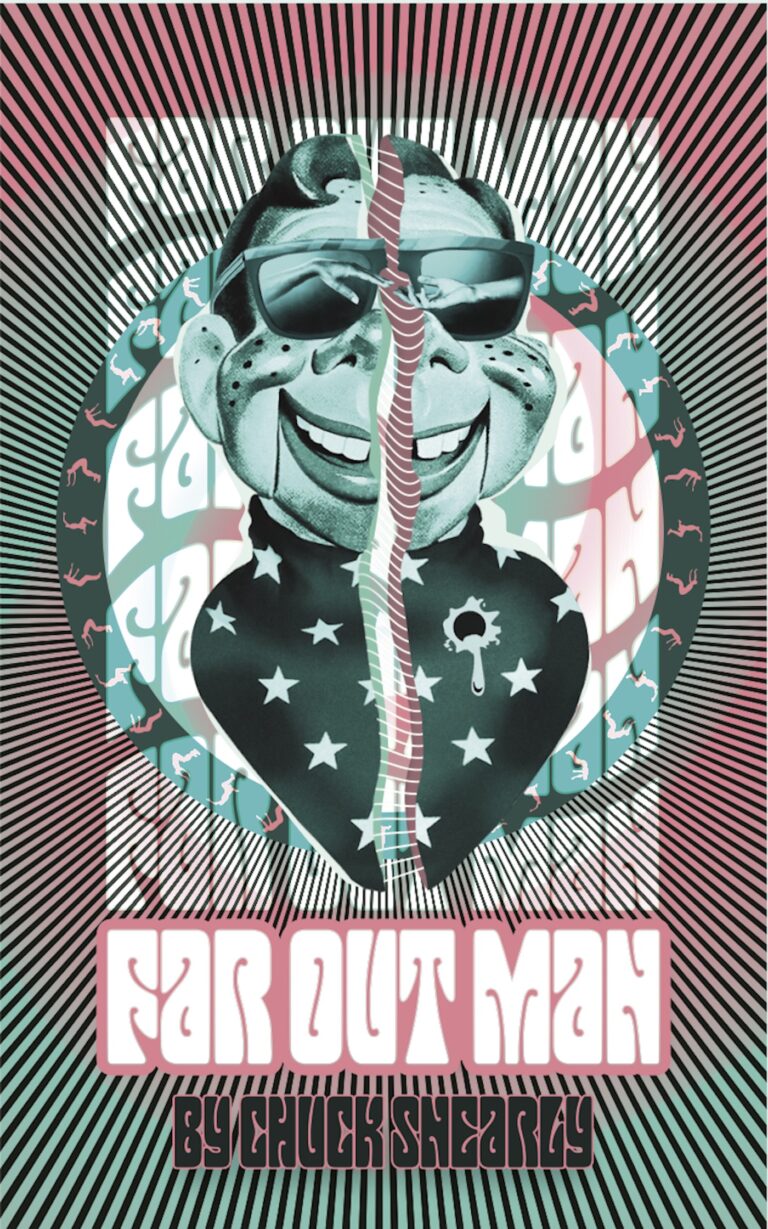In many ways, Chuck Snearly’s FAR OUT MAN is a throwback to a time when ‘good’ novels didn’t necessarily adhere to an established set of rules. A genre ‘blender’ in every sense of the word, Snearly’s latest release reminds readers (and authors alike) that a first-page inciting incident and a hard word count are hardly requirements for a brilliant piece of fiction. And in the spirit of some of modern fiction’s most enduring works, FAR OUT MAN succeeds by tossing an ordinary man into extraordinary circumstances and removing all boundaries on what transpires.
Jack Crost loves two things: American literature and the nineteen sixties. Jack Crost is also a walking contradiction. His students know him as the “nutty” lit professor who personifies inner peace, but only because Jack is adept at concealing his emotional scars. While Crost wants nothing more than to positively impact his students , a well-intentioned lesson soon leads to a student protest and chants of “Crost must go.” Just when it seems like things can’t get any worse, a massive heart attack lands Jack in the hospital. Reeling in the wake of his close encounter with death, Jack decides it’s time to get to the bottom of, well, everything. Enter Murphy, a former cop and Vietnam vet who is summoned to lend Jack a helping hand. Together, Jack and Murphy embark on a quasi-metaphysical journey to discover that oh-so-murky truth. Along the way, Crost and his cohorts are forced to reassess their counterculture views and decide, once and for all, what kind of people they want to be.
Despite its billing as a second installment to Snearly’s Motor City Murphy Murder Mystery series, FAR OUT MAN is essentially a standalone novel that touches upon multiple genres. Vacillating between whodunnit noir and sci-fi-tinged escapism, the opening chapters feel a bit unmoored, a sensation that continues throughout. This may sound like a detriment, but it ultimately works—Vonnegut fans will immediately appreciate Snearly’s wide-eyed protagonist and the increasingly surreal narrative that unfolds. Speaking of plot lines, Snearly’s career in speech writing serves him well as FAR OUT MAN is propelled mainly by its dialogue. In particular, the natural rapport that develops between Jack and Murphy is the beating heart of this novel. The only complaint here is the scarcity of tags, which renders some longer exchanges difficult to follow. Even the most observant reader will struggle to keep who’s saying what straight when pages of dialogue pass without a single reminder of who’s speaking. That aside, Snearly’s seasoned writing is a joy to read, as is the ever-present optimism permeating the otherwise grim subject matter. Of course, mileage may vary with the story’s admittedly slow start and uneven pacing, but it all comes together in the end (and, oh, what an end it is).
Chuck Snearly’s FAR OUT MAN offers readers an intriguing blend of comedy, commentary, and genre-bending fiction that never fails to entertain.
~James Weiskittel for IndieReader


